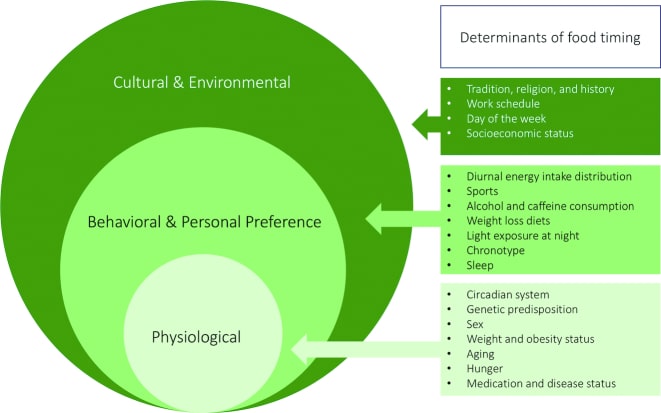Timing of Food Intake: Identifying Contributing Factors to Design Effective Interventions

Observations that mistimed food intake may have adverse metabolic health effects have generated interest in personalizing food timing recommendations in interventional studies and public health strategies for the purpose of disease prevention and improving overall health. Small, controlled, and short-termed intervention studies suggest that food timing may be modified as it is presumed to be primarily regulated by choice. Identifying and evaluating social and biological factors that explain variability in food timing may determine whether changes in food timing in uncontrolled, free-living environments are sustainable in the long term, and may facilitate design of successful food timing-based interventions. Based on a comprehensive literature search, we summarize 1) cultural and environmental factors; 2) behavioral and personal preference factors; and 3) physiological factors that influence the time when people consume foods. Furthermore, we 1) highlight vulnerable populations who have been identified in experimental and epidemiological studies to be at risk of mistimed food intake and thus necessitating intervention; 2) identify currently used food timing assessment tools and their limitations; and 3) indicate other important considerations for the design of food timing interventions based on successful strategies that address timing of other lifestyle behaviors. Conclusions drawn from this overview may help design practical food timing interventions, develop feasible public health programs, and establish guidelines for effective lifestyle recommendations for prevention and treatment of adverse health outcomes attributed to mistimed food intake.
Keywords: cardiometabolic health; chronobiology; dietary intake; fasting; food timing.

